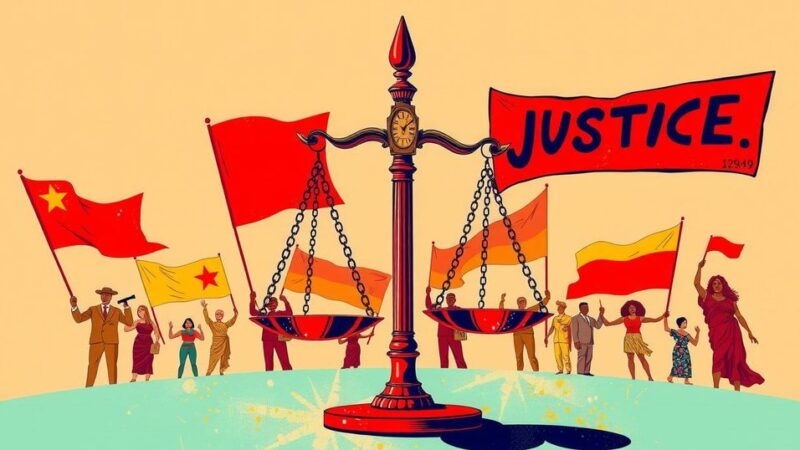Guinea’s junta has pardoned former dictator Moussa Dadis Camara, condemning the decision from human rights organizations as unjust. Camara had been serving a 20-year sentence for his role in the 2009 Conakry massacre, which resulted in numerous fatalities and sexual violence. Critics argue the pardon undermines justice efforts, despite the junta’s commitment to compensate victims.
The Guinean junta’s decision to pardon former dictator Moussa Dadis Camara has incited strong condemnation from human rights organizations, who deem the act an affront to justice. Camara, previously sentenced to 20 years for crimes against humanity related to the notorious 2009 Conakry massacre, received a pardon on health grounds, leading to his relocation from prison to a luxury villa in the capital.
Camara’s conviction arose from his involvement in the violent suppression of an opposition protest on September 28, 2009, during which at least 156 individuals were killed, many by gunfire or stabbing. Additionally, a UN investigation revealed that over 100 women were raped, with some subjected to prolonged detention and torture. Despite calls for accountability, only 57 bodies have been recovered, with reports suggesting the actual death toll may be even higher.
Organizations such as the International Federation for Human Rights (FIDH), the Association of Victims, Relatives, and Friends of September 28 (AVIPA), and the Guinean Organisation for the Defence of Human and Citizen Rights (OGDH) have collectively voiced their outrage. FIDH Secretary General Drissa Traore emphasized, “This decision sends a disastrous signal, showing contempt for justice, accountability, and the fight against impunity.”
The joint statement issued by these organizations condemns Camara’s pardon as a clear violation of Guinea’s obligations to both national and international justice systems. Camara had previously filed an appeal regarding his conviction. Alongside this, junta leader General Mamadi Doumbouya recently announced plans to cover compensation for massacre victims, though critics argue that the pardon undermines any efforts towards achieving justice.
The pardon of Moussa Dadis Camara by the Guinean junta has sparked widespread outrage from human rights groups, who view it as a significant setback for justice and accountability. Despite his conviction for heinous crimes during the 2009 massacre, his release raises serious concerns about impunity in Guinea and the government’s commitment to justice for victims. The ongoing call for accountability remains a crucial issue for both national and international human rights advocates.
Original Source: newscentral.africa






